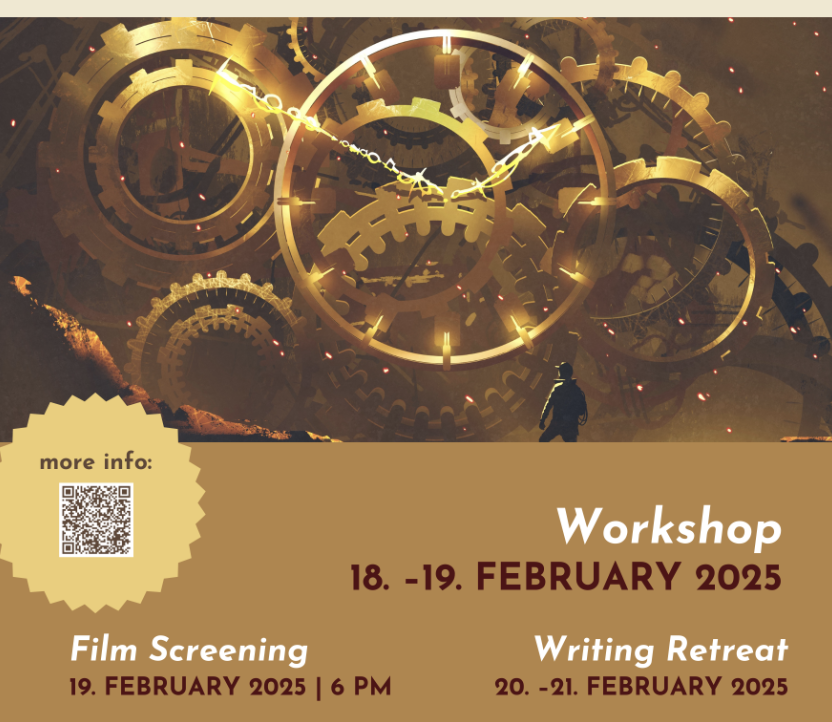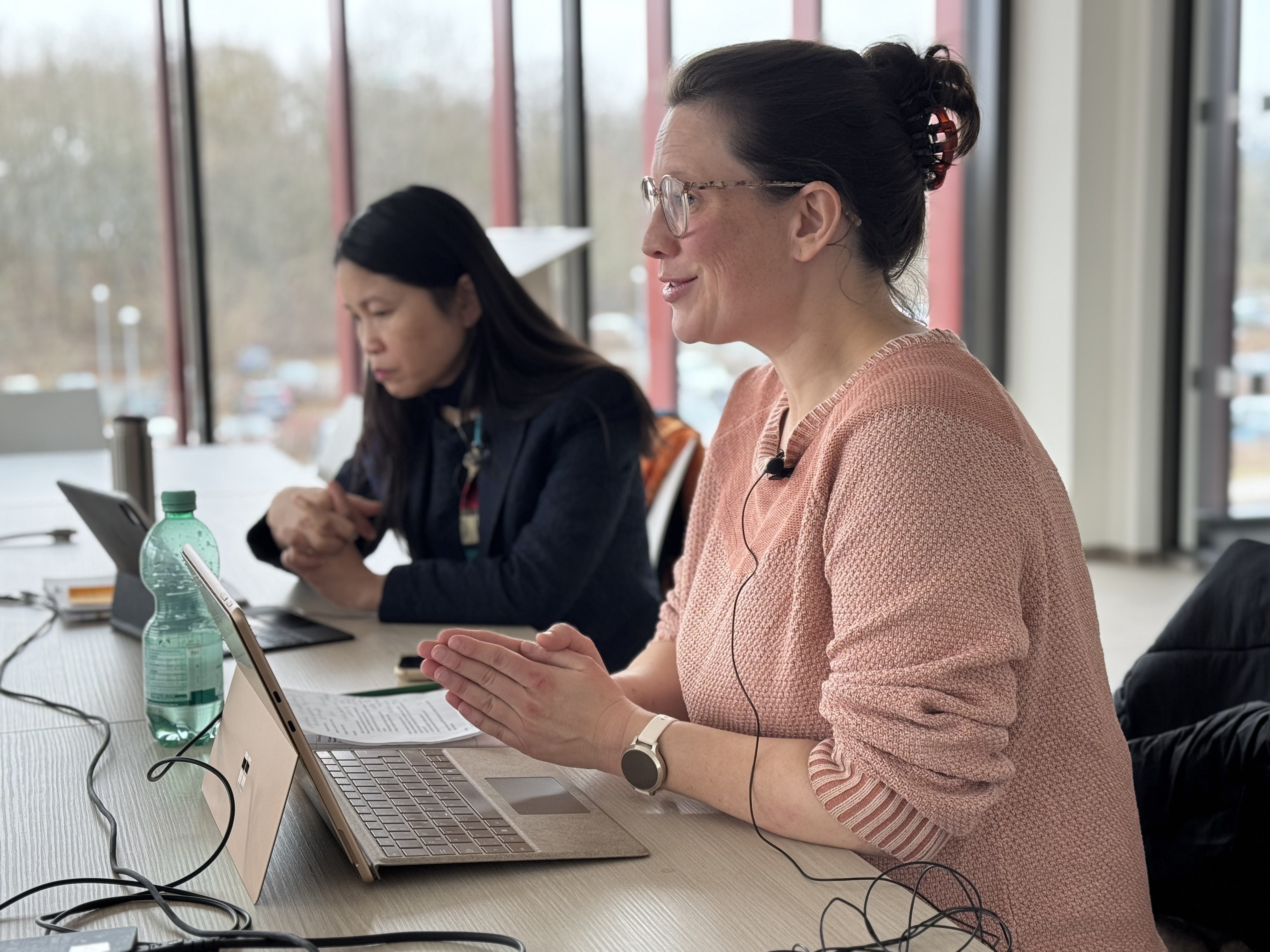RETHINKING ACCELERATED LEARNING IN THE GLOBAL SOUTH: IMPLICATIONS, CHALLENGES, AND PERSPECTIVES FOR EDUCATIONAL DEVELOPMENT IN AFRICA AND ASIA
Convenors:
- Dr. Maria Theresa Vollmer, Postdoctoral researcher, Education Science, University of Bayreuth, theresa.vollmer@uni-bayreuth.de
- Dr. Billian Khalayi Otundo, Postdoctoral researcher, English Linguistics & Cluster of Excellence Africa Multiple, University of Bayreuth, billian.otundo@uni-bayreuth.de
- Dr. Emnet Tadesse Woldegiorgis, Associate Professor in Higher Education, Ali Mazrui Centre for Higher Education Studies (AMCHES), University of Johannesburg, SA, emnetw@uj.ac.za
- Dr. Que Anh Dang, Assistant Professor in Educational Sociology, Research centre for Global Learning, Coventry University, UK, queanh.dang@coventry.ac.uk
- Dr. Emmanuel Effiong Johnson, Postdoctoral Researcher, Centre for Global Learning, Coventry University, UK, ae1522@coventry.ac.uk
Contact person
- Dr. Maria Theresa Vollmer, theresa.vollmer@uni-bayreuth.de
- Dr. Billian K. Otundo, billian.otundo@uni-bayreuth.de
Participants (Guests)
- Brenda Ayuku Chiteri (Ms), Independent Researcher & Cloud Solutions Architect, Microsoft (Kenya) https://www.linkedin.com/in/brenda-ayuku/?originalSubdomain=ke
- James Otieno Jowi, Deputy Executive Secretary, East African Kiswahili Commission, East African Community (Kenya).
https://www.linkedin.com/in/james-otieno-jowi-519139265/?originalSubdomain=ke - Sunitha Gandhi, India
- Associate Professor Mlamuli Hlatshwayo, University of Johannesburg, South Africa
- Associate Professor Thandi Lewin, University of Johannesburg, South Africa
- Professor Dr. Susanne Mühleisen, Chair of English Linguistics, Dean BIGSAS, Vice Dean Early Career and Equal Opportunity and Principal Investigator of the Africa Multiple Cluster of Excellence, University of Bayreuth
- Professor Dr. Iris Clemens, Chair of Educational Science at the University of Bayreuth and Principal Investigator of the Africa Multiple Cluster of Excellence
Summary
The primary aim of this working group (WG) is to critically examine the phenomenon of accelerated learning and its implications on educational practices, systems, and structures in the Global South, focusing on Africa and Asia. Accelerated learning often emphasises short-term solutions and offers a quick fix to the so-called 'education crisis' in Africa and Asia, but fails to address critical issues such as quality, equity, and social justice in education. Accelerated learning involves techniques, methodologies, or approaches intended not only to broaden access to education but also thought to improve the efficiency and responsiveness of institutions to the labour market. However, this WG critically examines these assumptions, considering their implications through the lens of learning theories and practices in the Global South by asking key questions such as:
- How does the implementation of the current accelerated learning agendas impact educational settings at both systemic and individual levels within diverse cultural, linguistic, social, and economic contexts in the Global South?
- How can a comparative research design incorporating the temporal dimension and process provide insights into the effectiveness and transformation of accelerated learning practices across diverse educational systems in the Global South, considering factors, such as historical trajectories, temporal dynamics, identity formation, and evolving learning processes?
- How does the agenda for accelerating learning influence educational structures and practices in the Global South, particularly in terms of the sense of urgency and pressure to reform education systems for particular educational outcomes?
- What are the discourses surrounding accelerated learning within the global education transformation agenda, and how do these narratives impact educational systems and learning practices in selected cases within the Global South?
- What factors contribute to the legitimacy and perceived value of accelerated learning?
- What are the conceptual and practical differences and similarities between ‘accelerated learning’ and ‘transformative learning’ across various diverse and multiplex spaces?
To address these questions, we draw on theories and methodologies from multi-disciplines, such as education, higher education, lifelong and lifewide learning, educational management, education policy research, African studies, development studies, sociology and linguistics, critical area studies, and comparative education research.
We aim to present the project outcomes in an edited book, a journal special issues and a documentary film.
Synergies we seek to create
This interdisciplinary WG fosters international collaboration among scholars and practitioners spanning diverse fields such as education, sociology, linguistics, science and technology studies (STS) (especially in view of AI in learning), film and media studies, and cultural studies. Our collaborative efforts aim to strengthen ties between African Studies at the University of Bayreuth and esteemed research institutions globally, including the Research Centre for Global Learning (GLEA) at Coventry University in the UK, the Ali Mazrui Centre for Higher Education Studies at University of Johannesburg in South Africa, and research institutions in Finland, Kenya, and India. Through our research, we seek a deeper understanding of accelerated learning, exploring both its theoretical underpinnings and practical implications to inform education policies.
ACTIVITIES
Bi-monthly Virtual Meetings between October 2024 to February 2025
Members of the working group meet virtually twice a month. One meeting is dedicated to the reading group where we discuss selected papers relevant to the research themes and collaborative projects, the other meeting is to discuss our work-in-progress of the planned publications (an edited book and a journal special issue) and a documentary film.
PODCAST
Rethinking Accelerated Learning
Cluster Conversations: Postdoc Working Group "Rethinking Accelerated Learning"
FILM / DOCUMENTARY
"Need for Speed" Documentary of the Postdoc Working Group "Rethinking Accelerated Learning"
The Postdoc Working Group's workshop in February was accompanied by a film screening of documentary "Need for Speed: African and Asian Students on Accelerated Learning at University of Bayreuth".
BLOGPOST
Rethinking accelerated learning in relation to quality goals
Is the rise of TikTok-style learning and the fast-paced academic life putting education systems (and individuals) under pressure? Our new article explores the pros and cons of Accelerated Learning - where compressed timeframes and modified teaching methods aim to fast-track learning outcomes. But it's not just classrooms adapting to speed - fast policy learning is also driving the rapid adoption of education policies to meet economic and workforce demands. While these policies offer quick solutions, concerns over quality and long-term consequences remain. To ensure equitable and sustainable education goals, it is crucial to assess policy implementation beyond official discourse. Otherwise, accelerated learning and fast policy learning risk becoming unfulfilled promises.





